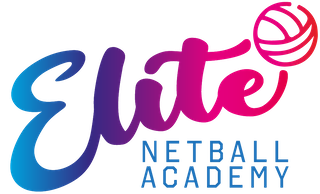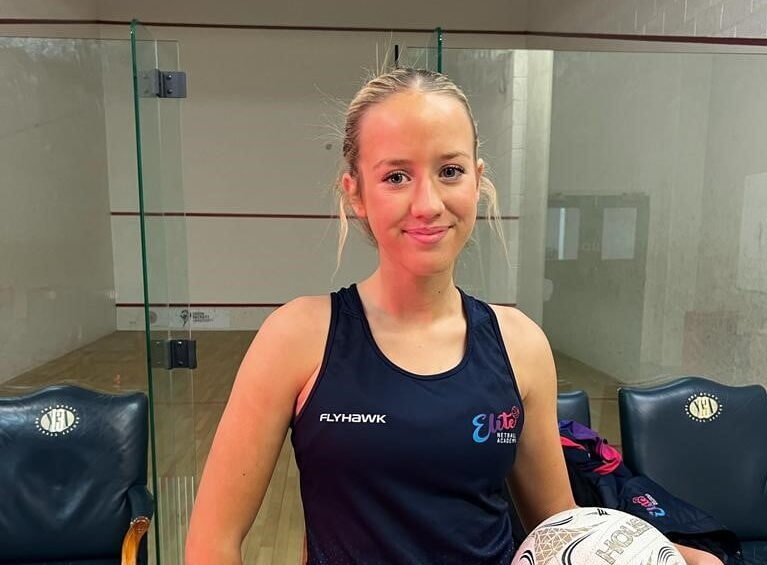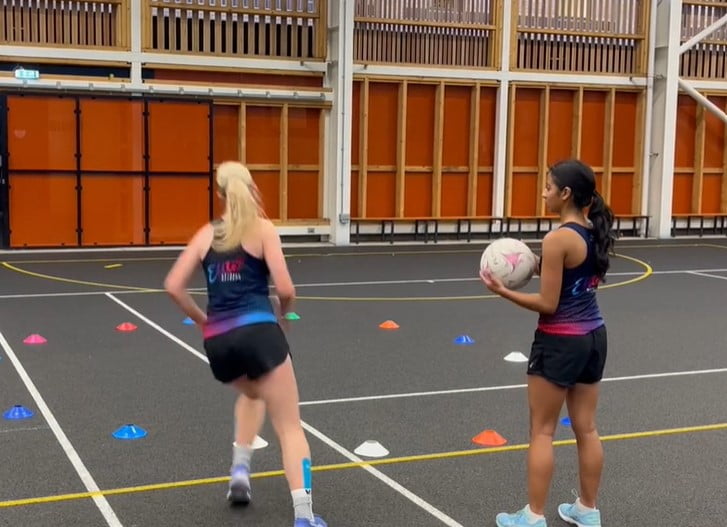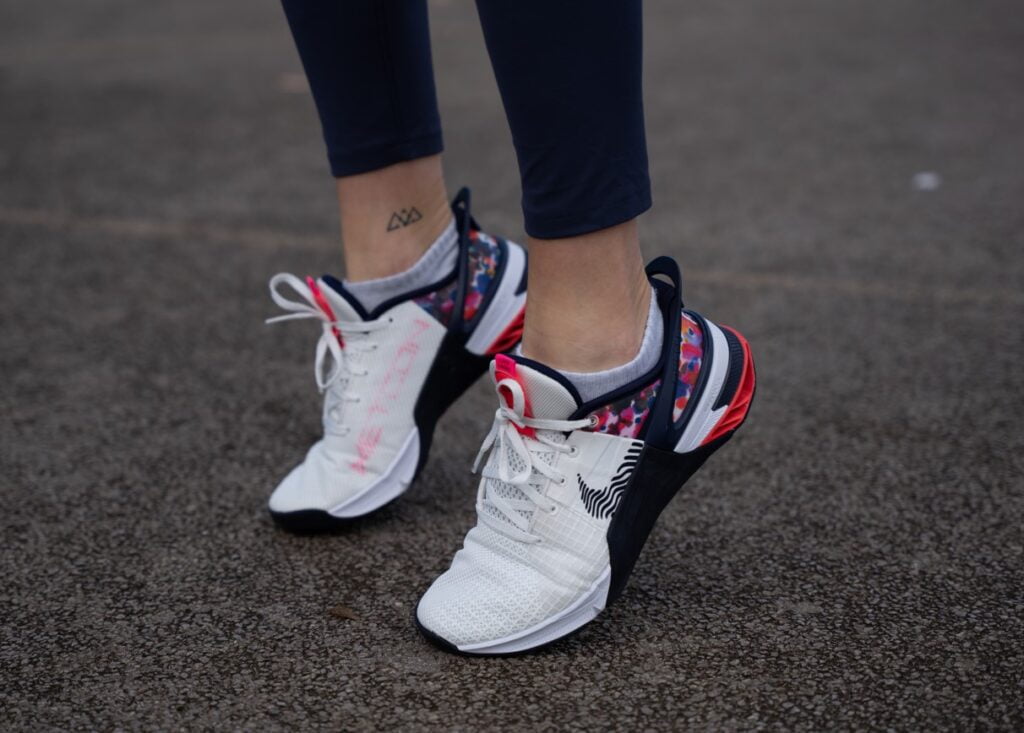How Fit Do You Need To Be To Play Netball?
The game of netball is constantly evolving. It’s becoming quicker and faster and athletes have to be able to adapt to this. Netball fitness, agility and strength are now a huge part of the game.
For those wanting to reach higher levels of the sport and play competitively for a local club, county or even country, a high level of netball fitness will be required. Here at Elite Netball Academy, we know just how important this is.
To meet the demands of the game, the body must be built on strong foundations. So we caught up with Superleague player and International netballer Nat Panagarry to find out about netball fitness and why strength and conditioning are so important.
Netball Strength and conditioning
To play netball, we need to be anaerobically and aerobically fit. Netball is made up of short and sharp accelerations and decelerations. These movements put a lot of stress on our bodies so it’s important we make sure it’s in tip-top shape to stand up to the demands.
Strength and conditioning training for netball can improve many aspects of your game and can significantly improve performance. Strength and conditioning exercises offer a wealth of positive benefits to your overall health and fitness level. Building up muscular strength for netball will build power, improve your coordination and speed on the court and also decrease the risk of injury.
Why you need muscular strength in netball
Netball is a high-intensity sport. Multiple changes of direction, accelerations, abrupt decelerations, jumping, landing, and overall volume of running. Taking all of that into consideration the first priority of any strength and conditioning plan for an athlete is to reduce the risk of injury. Good muscular strength can help reduce the risk of injury. Robust athletes will be able to handle the physical demands of the sport for longer and avoid injury.
Quite simply, a stronger netballer is a better netballer.

Why it’s important to gradually increase load in the gym
The body is smart. New stimuli, such as weight training, puts the body under stress, which leads to adaptation and increased strength. We adapt by gradually increasing the total load and adapting exercise selection. It’s worth mentioning here that every single one of us is made up very differently and we’ll all need to focus on specific areas. Doing specific and targeted exercises can tackle any weaknesses and continue to improve strength to help us become better athletes, and reduce the risk of injury.
Netball fitness – what type of fitness do you need for your position?
For netball, there are seven components of physical fitness I consider to keep improving my performance on the court. These are as follows: aerobic capacity, anaerobic capacity, muscular power, agility, speed, coordination and balance.
The type of netball fitness and fitness programme you need will ultimately depend on your current physical traits and the position you play.
End-court players, the GK and GS, make short and fast movements with a lot of jumping. A lot of speed work at high intensity is recommended and your conditioning should focus on short bursts.
Players at this end of the court need to be explosive and reactive so power plays a huge part in their roles. Having the strength to hold off defenders or shooters is a massive part of their game. A strong lower body and core can improve individual performance.

Attacking and defensive players, GD, WD, WA and GA, have similar requirements to centres. The difference being they have a specialist skill or trait on top of their ability to run (shooting, agility, defending). This means they need to be able to consistently run well across the game and perform these skills under huge amounts of fatigue and pressure.
Players in these positions need high aerobic fitness to be able to run long distances over the course of the game while also having strong anaerobic systems to tolerate the centre-pass sprints, hard drives and cuts to the ball.
Centres need to be able to run for 60 minutes across the whole court. Linking the two ends together means they handle the most ball. Good decision-making under fatigue is a priority and they need to have little (if any) drop off in intensity during the game.
If you play centre, you should be completing the greatest volume (distance) of running. Centres should be doing a mixture of aerobic and anaerobic conditioning. Check out my favourite netball fitness drills for centres further on in this article.
Why is agility important in netball?
Agility is massively important in netball. Netball players are constantly accelerating and decelerating at speed. Sudden direction changes and quick actions can cause injuries to the body if we are not prepared for the load. However, athletes who train for agility find stability even while changing direction.
The improved balance and strength found through agility training reduces the risk of accidents or injury while enhancing overall performance.
Why is power needed in netball?
There are many benefits to incorporating power into your netball fitness. Being able to transfer your strength into power movements helps you run faster, throw harder, jump higher and overall be more explosive. In netball the more explosive we are we can change our pace in attack to get rid of our defender and attack interceptions in defence.

Why do you need speed in netball?
In attack and defence, speed in netball is a key skill. In attack, you need speed to change direction and get away from your defender to receive the ball and stay in possession. You also need the speed of passing to get the ball flowing through the court.
In defence, speed of movement is crucial in order to not only stay with your attacker but also have the speed to move off and go for the interception.
Specific netball fitness drills
As a centre, I like to constantly improve my aerobic capacity. I want to make sure I’m giving the same intensity in the last 5 minutes as I did at the start of the game. The less fatigued I feel the more capable I’m of executing other skills.
My favourite netball fitness drills:
- 30 seconds, on 15 seconds off x 8 reps (do 3 sets)
- 3 minutes on, 1 minute off x 6 reps (do 2 sets)
These are examples of running sessions on the court. I do these netball fitness drills once or twice a week.
I will also complete a netball drill fitness session. So I’m still incorporating anaerobic conditioning with a ball and smaller changes of direction with intense efforts. My favourite drill for this is 1 worker and 1 feeder:
- 30 seconds on, 30 seconds off x 8 reps (do 2 – 3 sets)
Examples of netball drills to do would be anywhere’s, side to side, forward and back or zig-zig movements.
Try Natalie Metcalf’s favourite netball training drills
Get the drills here
Why rest is important during training
Every time you work out you create microscopic tears in your muscle tissues. When you rest, your muscles start to heal and grow back stronger, meaning you’ll be able to do the same workout with less effort in the future. If you skip rest days, it could lead to longer spells out through injury.
Sleep. The most important part of rest and recovery, not only for exercise but for everyday life, is sleep. Your body needs 7 – 9 hours of sleep in order for all of the chemical, hormone and anti-inflammatory responses to happen at their peak level. I can’t recommend sleeping enough!
It’s worth remembering that rest and recovery will be very different in the off-season in comparison to during the netball season.
Nat Panagarry on life outside of netball
Find out what Nat gets up to when the final whistle blows. Click here.
Prioritising performance is key in the netball season to make sure you’re fresh when you’re competing in games. However, during the off-season, you may be able to push your body more and really focus on certain strength and conditioning attributes you want to improve.
I hope you’ve enjoyed this blog on netball fitness. The advice above has helped me throughout the years and helped me keep a good level of netball fitness.
Thanks, Nat x
About the author, Nat Panagarry
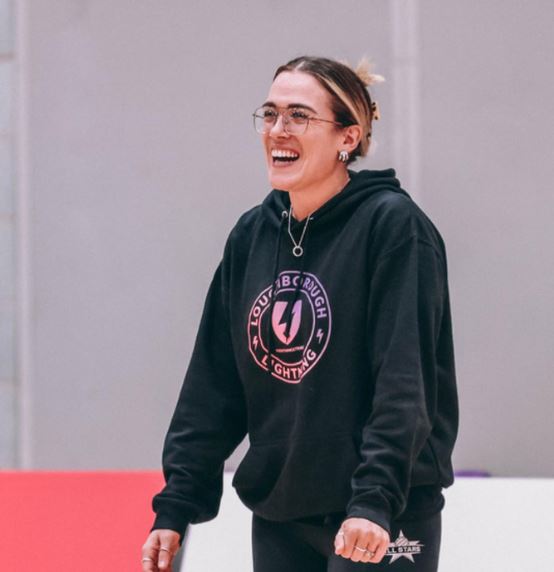
Nat Panagarry is an Elite Netball Academy ambassador, Superleague player and International netballer. Nat co-coaches our Manchester High-Performance Centre netball class and regularly attends netball camps in the holidays. Nat won the Superleague Grand Final with her team in 2021.
When she’s not playing netball Nat can be found walking her Sausage Dog Louis.
